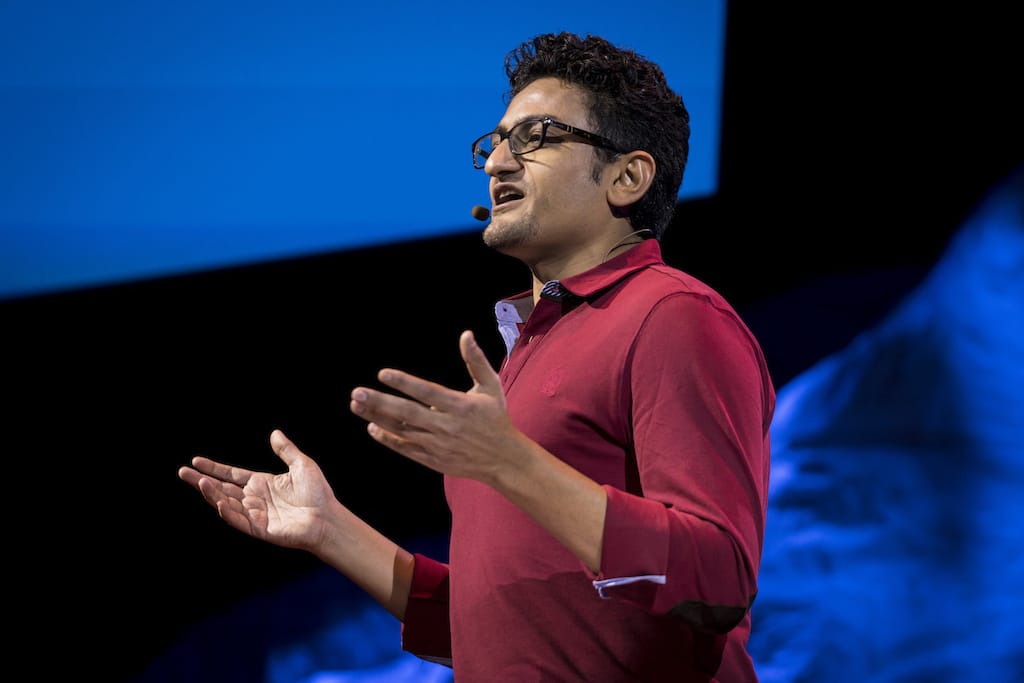
‘To achieve your vision, you need friends and communication channels more than you need plans,’ Egyptian activist and tech entrepreneur Wael Ghonim wrote in his book Revolution 2.0.
Ghonim made his name as one of the administrators of the Facebook page ‘We are all Khaled Said’, which played a major role in sparking the protests that led to the 25 January 2011 revolution. This resulted 18 days later in the resignation of President Hosni Mubarak.
Khaled Said was a 28-year-old who was tortured to death in prison. The Facebook page was set up in solidarity with him and to oppose police brutality.
At the start of the protests, Ghonim was detained for 11 days. After his release, he appeared on television and addressed the protesting crowd on Tahrir Square, quickly making him a symbol of the revolution.
Born in Cairo in 1980, Ghonim has a background in computer science and a master in marketing and finance from the American University of Cairo. After graduating in 2004, he first established financial portal Mubasher, and later joined Google Middle East as a marketing manager. He currently lives in the United States with his wife and children.
He became politically engaged through a Facebook page for the liberal politician Mohamed ElBaradei. ElBaradei himself described Ghonim as an embodiment of “the youth who constitute the majority of Egyptian society”, in a short biography for TIME’s 2011 list of 100 most influential people.
Even more than a symbol of the Egyptian revolution, Ghonim is a symbol of the so-called ‘internet revolution’ or ‘social media revolution’, a reference to the widespread use of Facebook and Twitter to mobilize protests throughout the Arab Spring.
Ghonim approached the revolution strongly from the internet perspective, believing in its power to connect people to challenge the regime. In an interview shortly after the revolution, he said: “Our revolution is like Wikipedia, okay? Everyone is contributing content, [but] you don’t know the names of the people contributing the content. This is exactly what happened [in Egypt]. Everyone contributing small pieces, bits and pieces. We drew this whole picture of a revolution.”
Yet however massive his role before and during the 18 days of the protests, he was unable to sustain his influence.
“His role ended after the revolution,” Egyptian journalist Adham Youssef told Fanack. “Like many ‘social media activists’, he played a crucial role in creating awareness about and mobilizing people against police brutality, but later disappeared from the political process.”
After Mubarak was removed, Ghonim and other activists, such as Israa Abdelfattah, Ahmed Maher and Gigi Ibrahim, did not play a role in decision making at a political level, and their influence on the public declined, Youssef said.
Maher was even arrested in a protest in 2013, and is currently serving a three-year prison sentence. “They received a lot of international attention, from the John Stewart show to the cover of TIME magazine, but did not directly influence the consciousness of the people inside Egypt as they had before.”
After Mubarak’s fall, it turned out that friends and communication channels were not enough to bring political change. A plan was needed, and this was lacking.
One of the main shortcomings of the Egyptian revolution was that it failed to provide an alternative. After years of polarization and social unrest, Egypt is once again headed by a military strongman, President Abdel Fattah al-Sisi, human and civil rights are under scrutiny, and there is little, if no, democratic progress.
In the following years, Ghonim occasionally spoke out, for instance against the January 2016 abduction and killing of the Italian student Giulio Regeni, which he linked to the security forces. However, his impact never came close to what he had achieved with the Khaled Said page.
Ghonim himself acknowledges the shortcomings of the once-so-promising revolution. On the website of his startup, Parlio, he states: ‘I once said, if you want to liberate a society, all you need is the internet. I was wrong. I said those words back in 2011, when a Facebook page I anonymously created helped spark the Egyptian revolution.
‘The Arab Spring revealed social media’s greatest potential, but it also exposed its greatest shortcomings. The same tool that united us to topple dictators eventually tore us apart.’
Ghonim gradually moved from political activism to social entrepreneurship. He wrote a book on the Egyptian uprising – Revolution 2.0 – and with the money it generated he set up Tahrir Academy, a non-profit online learning platform for Egyptian youth. In 2014 he joined Google again, only to leave in the same year to start Parlio.
Parlio is an online community that aims to empower people to share thoughts and communicate with global intellectuals, including Noam Chomsky, Thomas Friedman and Reza Aslan.
One could argue that Ghonim is representative of the power of the people and the internet as a tool to assemble, but also exemplary of the inability of revolutionaries to build on their success and participate in the political process.
On the other hand, Parlio and Tahrir Academy show that Ghonim does not blindly accept the presumption that as great as the internet is for sparking protests, it takes more to bring about actual political change. He keeps searching for ways the internet can also facilitate the plan that was missing in Egypt after the revolution.


